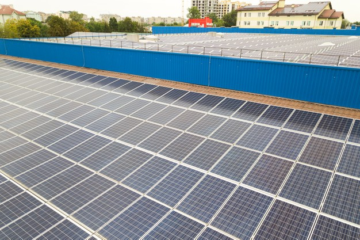India has set a target to achieve 100 GW power capacity through grid-connected solar energy, out of which 40 GW is estimated to come through rooftop solar installations by 2022.
Out of 40 GW, we have currently achieved close to 4 GW of installation which is barely 10% of the targets to be achieved by 2022. Rooftop solar has huge growth potential but we need to address some of the issues listed below to move at a faster pace towards achieving this target.
Rooftop Solar (RTS) markets have not completely matured and being in the transformation stage faces the issues of customer awareness and knowledge. The awareness gap delays the decision-making by the client and thus results in slowing the pace of adoption of the technology. We have seen EPC players quote unreasonable prices and because the customer does understand the solar product that well, he doubts the integrity of the installers and gets into a brainstorming mode, resulting in lot of time spent without any closure. Spreading awareness among various target markets about solar product-technology, regulations, quality, pricing etc. will help. We should aim to make solar a “need” than a “choice” based decision for the customers.
Financing is one of the key challenge that effects a deal closure. For majority of clients upfront cost associated with RTS is a concern. For example Residential customers are not keen to take such cost and spend from the society funds. Moreover they seek OPEX (BOOT) model over CAPEX even for smaller projects. However, the challenge for smaller projects (30-80 KW) is that majority of investors do not want to invest given the off taker risk and the cost of due diligence. Finding an innovative and cheap finance will go a long way to achieve RTS adoption by societies and other key players. Faster, unsecured loan with low-interest rates loans is one of the solution to address this particular challenge
The credit profile of the client in the RTS sector presents a unique challenge since most of the power purchase contracts are long-term ranging from 10- 20 years. We have seen few good projects not being taken by some investors as they doubt the PPA enforceability. Building in stringent enforceability of contract laws will bring in investor trust and easier deal closure.
Government has undertaken good initiatives to promote solar but as the market is still evolving we do need capacity building to reduce processing time. Delay in subsidy approval process increases other clients’ apprehension to go for a subsidy based project. Some innovative incentive schemes can help increase off take of solar in the residential space say like in Delhi Residential solar policy.
The rooftop sector is evolving and building an ongoing process that brings together different stakeholders especially private players, banking sector, investors and government bodies will resolve many of these issues through knowledge sharing, trainings, awareness and innovative financial models.


